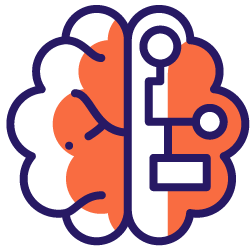Search engine algorithms are constantly evolving and becoming more complex. Since their inception, search engines have gone a long way from primitive search to sophisticated algorithms and machine learning. All of this directly affects the field of SEO.
On the one hand, it has become much more challenging to promote sites and get them to the top of SERPs. On the other, the search results have become of better quality. There is less and less room for dishonest manipulations that used to ensure getting the first positions.
Nowadays, businesses use AI to streamline processes, improve the performance of websites, and enhance their search engine optimization strategies. In this article, we’ll explore five ways how AI can help SEO professionals and what AI SEO tools exist.
1. Comprehensive Website Analysis
Artificial intelligence can help with web analytics and provide valuable insights from web data. Companies can use this information to improve customer service, personalize product recommendations, and ensure data compliance.
How many pages does a visitor see on average per visit? Which products do shoppers buy less? AI and machine learning analyze customer data, study consumer behavior, and deliver personalized offers.
Personalized recommendations are a powerful sales tool. Today it is difficult to imagine a client who doesn’t expect a personalized approach. According to statistics, 91% of consumers will buy from companies that offer products tailored to their preferences.
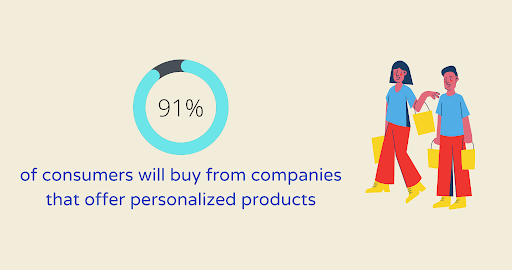
The buyer receives a relevant selection of products on the website, the mailing list, or the application, increasing the average check. The business benefits from this and increases conversions.
However, as confidential information accumulates, companies start to think about security. Clients leave their card details, contacts, purchase history. All of this becomes a target for cyberattacks. Systems for analyzing suspicious site behavior based on machine learning can track hacking attempts in time and protect the company from losses.
[Case Study] Optimize organic search traffic using log files analysis
2. AI-Powered Insights & Keyword Research
The more intelligent algorithms require more advanced SEO strategies. Marketers do a lot of manual work, such as topic and keyword research, to boost a site’s rankings. AI software can do these time-consuming tasks better and faster.
One area where AI is effective in helping SEO is finding hidden ranking opportunities. Powerful AI tools for SEO such as MarketMuse provide deeper insights into:
- content research and creation;
- keywords your customers don’t use;
- previously unknown link building capabilities;
- optimization process;
- topic insights.
Here is an example of the insights this program gives to its users. How does it work with your content enhancement? The tool analyzes your articles, comparing them with the top 20 websites that rank for this keyword.
It figures out what keywords they’re using and prompts you to try them. With these ideas, you will develop a successful content strategy that will increase your site’s SEO.
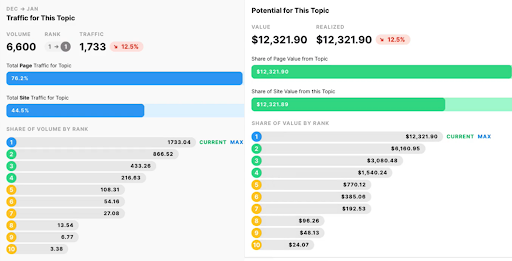
Screenshot taken on the official MarketMuse website
3. Determining the Best Time to Publish Content
To reach as much of your target audience as possible, you need to consider the time to publish your content. For example, the best time to publish blog posts is the afternoon and evening. This way, your audience will share them on social media more actively. But for sending emails, the best time is 9-11 a.m.
AI-powered analytics help you determine when your audience is most engaged. With this information, you can build content marketing strategies. For example, you can decide what time to post best and through which channels to distribute your content.
Linkfluence is an example of such a tool. This resource helps in measuring marketing performance and tracking your campaign success in real-time. The tool offers a cloud-based consumer intelligence platform that provides everyone on your team and your organization with continuous quantitative and qualitative analytics.
It automatically collects and analyzes reviews, identifies emerging trends, and proposes topics and ideas that will resonate with your target market.
What you can learn from Linkfluence analytics:
- how many people talked about your brand;
- what platforms they use;
- their favorite hashtags and emojis;
- how they feel about your brand;
- languages they speak;
- demographic data;
- how your audience represents your products and shares content visually.
You can view data for the last 30 days by default or adjust a date or time period from the previous few years to several hours.
You may also dive deeper into each of these tabs, such as coverage, to get analytics on the most critical metrics. For example, you can click on an emoji and see its usage. At the end of the analysis, you can save this data in any format and share it with anyone.
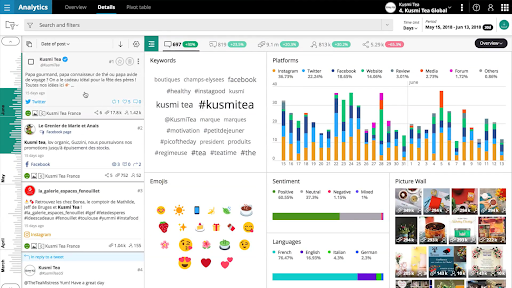
Screenshot taken on the official Linkfluence YouTube channel
4. Content Optimization with AI Tools for SEO
According to the data, 71% of consumers look for information via voice rather than typing. As a result, the popularity of Siri and Google Assistant grows. And search engines are starting to rank websites with content that contains keywords typical for voice search.
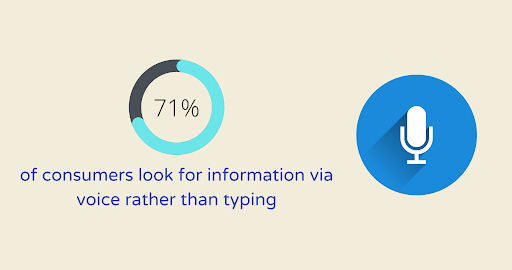
Written and voice searches are noticeably different. For example, a text query usually consists of short phrases, such as “Samsung refrigerator price”.
Keywords in the case of voice search are more natural and conversational. They include words such as “Who”, “What”, “When”, and “Where”. In the described situation, the voice request will most likely sound, “How much does a Samsung refrigerator cost”.
Expand your keywords using AI-based SEO tools like Answer The Public. All you need to do is to enter a keyword. Then, the system will show which user questions typically include this query. In this program, you can check questions, prepositions, comparisons with a given keyword for free. You can even sort your queries alphabetically.
Let’s take the keyword phrase “winter clothing” as an example. The tool collected 66 questions, 40 prepositions, 13 comparisons, and eight related queries. You can view the results as a tree of outgoing user intents or as a list. And the “Pro” version enables you to compare data over time and save the results to CSV with no limits to the number of searches.
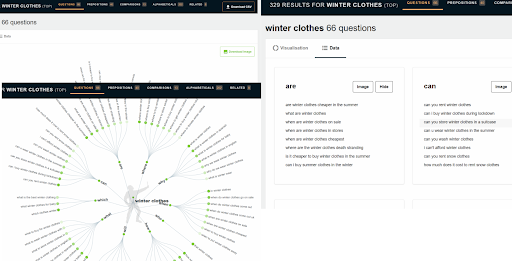
Screenshot taken on the official Answer The Public website
5. Smart Tagging
Tags are keywords by which you can easily find the required information. By tagging items, you unite them into one group. As a result, it improves their findability. You can use tags to link articles, blog posts, images, and more.
Tags can be:
- geographical names;
- dates;
- names;
- concepts;
- descriptive words;
- etc.
Artificial intelligence automatically tags content so that users can get what they are looking for faster. An example of such a tool is Adobe Sensei. Using AI and machine learning, it automatically tags media content and text assets with smart keywords related to the business and context as shown on the screenshot below.
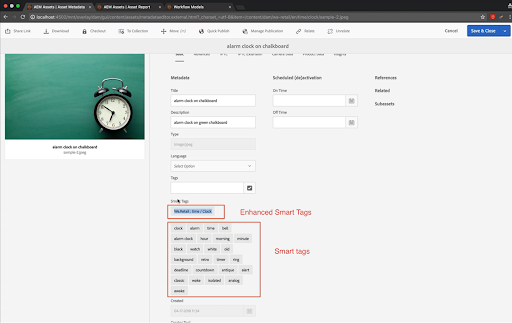
Screenshot taken on the official Adobe Sensei website
To Sum Up
In a rapidly evolving world, it’s essential to be abreast of the latest technologies. You need to respond to new challenges and adapt to customer requests. Website promotion is also making progress. Ranking systems are getting smarter and changing the way they allocate sites.
Artificial intelligence helps marketers and SEO specialists in this area as well. It offers a new level of brand humanization. It helps to create relevant content and optimize it for voice search keywords. Businesses strengthen their relationships with their audience and become more engaging.
By analyzing the data and making personalized offers, they increase user satisfaction and generate more leads and conversions. Seeing this, Google will trust such sites more, and their rankings will rise higher.
